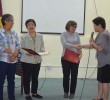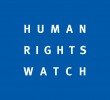IP Philippines� int�l meet tackled book piracy; Growth in book industry despite piracy concerns
In the recently concluded two-day conference on copyright, the Intellectual Property Office of the Philippines (IP Philippines) and its partner organizations discussed programs to address book piracy in the country.
The World Intellectual Property Organization (WIPO) organized the international conference which has the theme, �WIPO Sub-Regional Roundtable on Copyright-Based Business: Authorship, Publishing and Access to Knowledge�. Some 50 local authors, publishers and organizations in the publishing industry, which include delegates from six IP offices in Southeast Asia, participated in the event.
�Book piracy deprives authors the fruits of their labor and stunts the growth of the publishing industry and the economy. Beyond economics, a robust publishing is imperative to preserve and promote our rich cultural heritage,� Atty. Adrian S. Cristobal Jr., Director General of IP Philippines, said.
In the 2006 enforcement report of the National Committee for Intellectual Property Rights (NCIPR), the Criminal Investigation and Detection Group (CIDG) of the Philippine National Police (PNP) confiscated almost P1 million worth of photocopying machines and books in two establishments, and arrested a stall owner.
To-date NCIPR has seized various pirated items valued at more than P3.3 billion since the committee�s creation in 2005. IP Philippines is the lead coordinating agency of NCIPR. The National Book Development Board (NBDB), on the other hand, is a member agency of the committee.
Despite the prevalence of book piracy, indicators show that the industry posted growth. Almost P15 billion net worth of books sales were reported in 2005 alone by NBDB registered publishers, and a total of 16,281 books were published from 2004 to 2006.
Aside from enforcement, IP Philippines has been addressing the issue of book piracy at the policy level. �We are institutionalizing our Copyright Support Services Unit, which includes facilitating the establishment of collection societies for writers and other artists similar to what FILSCAP has done for musicians. To do this, we have established strong ties with the Book Development Association of the Philippines (BDAP), the Unyon ng mga Manunulat ng Pilipinas (UMPIL) and other writers� groups,� Cristobal said.
FILSCAP, the Filipino Society of Composers, Authors and Publishers, is the first collective management organization for artists in the country.
IP Philippines through its Copyright Support Services Unit conducted a basic orientation seminar on copyright for UMPIL members last year during the writers� congress. It also unveiled the Alab Art Space in the office�s ground floor on February 23, 2007. The art space, an expression of IP Philippines� commitment in support of the creative industries, is a venue for all artists.
IP Philippines and NBDB are aggressively raising copyright awareness to support authors and the publishing industry, and eliminate book piracy. �Intellectual property rights (IPR) education is now included in the fourth year Economics curriculum of high school students. The Bureau of Secondary Education of the Department of Education has included copyright and other IPR to the list of standard learning competencies for school year 2007 to 2008,� Atty. Ma. Andrea Pasion-Flores, Executive Director of NBDB, said in her presentation.
Other programs of NBDB as reported by Pasion-Flores include the following:
� Development of a teacher�s guide or module on IPR that can be easily incorporated in Economics textbooks and other relevant subjects;
� Regular fora on IPR with publishers and authors;
� Conducting policy studies on possible ordinances by city councils to require photocopying establishments to acquire licenses from a collective management society or authors� group.
# # #
For more information or to arrange for interviews, please contact Betty U. Regala, betty.regala@ipophil.gov.ph, (0906) 260-4175 or 752-5450 local 610 (telephone line), 890-4862 (facsimile line).
****** INBOX is an archive of press releases, statements, announcements, letters to the editors, and manifestos sent to Davao Today for publication. Please email your materials to davaotoday@gmail.com. Davao Today reserves the right to edit or refuse material for publication. *****










